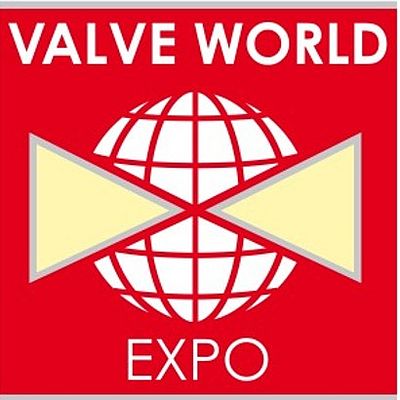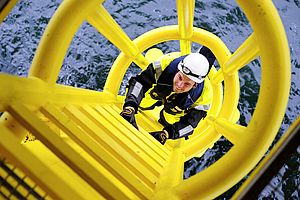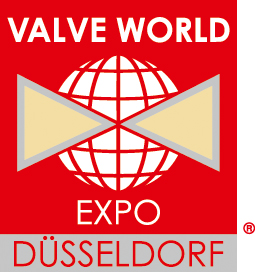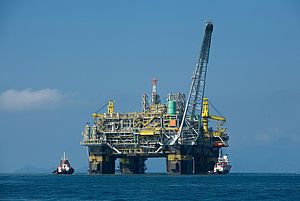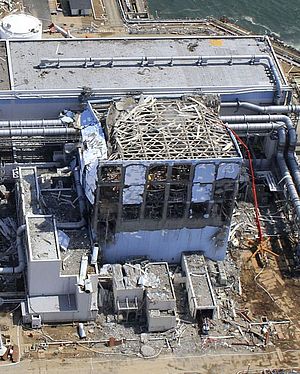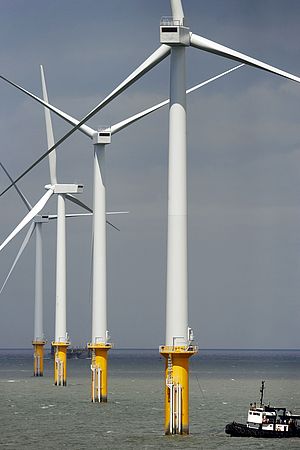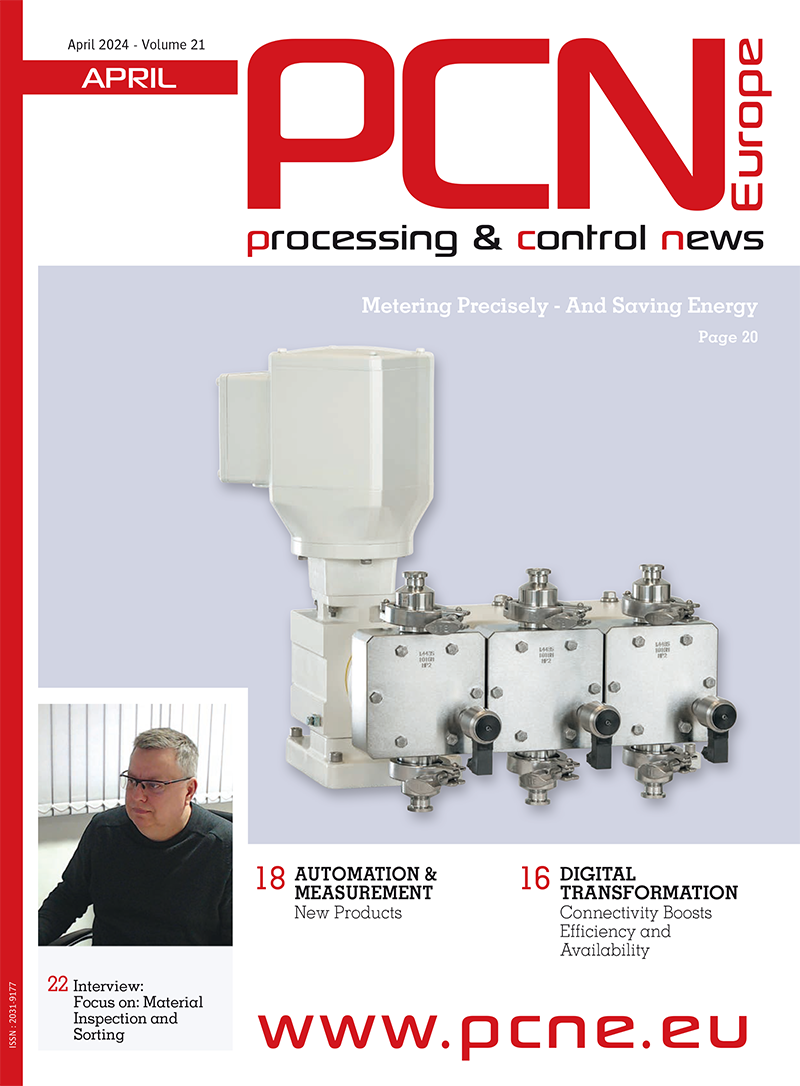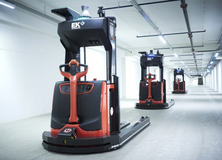Numerous valve makers see emerging markets like China as an opportunity, not as a threat. Some fear emerging markets, others place their bets on them. Competition from companies from threshold countries is growing rapidly, yet at the same time demand for machinery and plants from industrialized Western countries is high, in order to maintain the upswing. One thing is certain – success has pampered emerging markets in the past years, even when other states were slightly weakened. In the end, this creates an opportunity in uncertain times for makers and exporters of industrial valves.
Basic data shows the great potential emerging markets have to offer: 40 per cent of the world population lives in such countries, yet they account for only 20 per cent of the worldwide gross domestic product. Yet the share of global GDP is on the rise – a dormant, yet tremendous market.
BRICS states developing fast
A mere glance at BP’s World Energy review demonstrates the rapid development of the so-called BRICS states Brazil, Russia, India, China and South Africa. These countries account for the major part of worldwide energy demand, which rose by 2,5 per cent last year. In China, India and Brazil, energy demand grew by 5,3 per cent year over year. China itself accounted for 71 per cent of growth of increased consumption. Growth requires energy.
Worldwide production also demonstrates the current developments. The contribution of emerging markets grew from 15 to 25 per cent in the period from 1995 to 2010. For further growth, these states need support. The industrialized first world nations can help still the hunger for prosperity. A great opportunity, seeing that many European countries and the USA are stagnating or are heading towards a recession.
Makers of industrial valves have set their sights on China. The Middle Kingdom belongs to the top three markets for German valve makers, along with Russia and the USA. In the first half of 2012, Germany exported valves worth a total of 192 million euro. Off to The Middle Kingdom!
China’s mega-market for nuclear energy
Mankenberg has long discovered China as a market for its products. Last year, the Asian superpower accounted for five per cent of the company’s turnover. Amongst other things, Mankenberg exported special valves for oil production to Chinese companies.
Companies making valves for power plants simply can’t ignore China. China is viewed as the single greatest market for nuclear technology. Current plans see The Middle Kingdom constructing around 60 nuclear power plants within the next twelve years, all of which naturally have to be fitted with valves and pumps. „New power plants are being built in a speed we can hardly imagine over here in Europe“, confirms Friedrich Appelberg, CEO of Bomafa. It is no surprise that „all large nuclear engineering companies are vying for orders in the market“, as Schroeder Valves states.
Sempell is also successful in the Chinese market. The Tyco company supplies main steam valve sets for the new reactor blocks 3 and 4 of the Tianwan nuclear power plant. Each set consists of four different pilot-operated valve designs: main steam isolation valves, main steam safety valves, blow down isolation valves and main steam control valves. Sempell will deliver eight complete sets for the two blocks by 2014 und 2015.
New plants and offices
Hora Regelarmaturen is another company actively engaging with the Chinese market. It supplied the Lia Yuan power plant in the Jilin province with control valves.
For KSB, China is one of the most important strategic markets. The maker of pumps and valves operates five production plants in China, seven sales offices and four offices. More than 1,300 employees work for KSB in China. KSB recently opened a production plant for check and gate valves in Changzhou. Production halls and a distribution centre are spread over a total of 45.000 square metres. One hundred employees produce valves for various applications in the newly founded subsidiary KSB Valves.
Unsurprisingly, the KSB subsidiaries in the Asian Pacific grew 29 per cent, the strongest growth within the entire group. „The strongest percentage growth was achieved by the group’s subsidi¬aries in the regions Asia / Pacific and Americas“, the company declared.
Important networks
KSB is not the only company to have set foot in China. Flowrox has also opened an office in Shanghai. „China is an enormous and rapidly growing market and to be able to serve the customers with the same high standards as we do in Europe, we see it essential to be locally present with an office of our own”, explains Heikki Hyttinen, CEO of the Flowrox Group. „The best way to enter Chinese market is to take time and use local expertise”, Hyttinen added.
French company Bernard Controls has expanded its international network and opened an office in Shanghai, too. A training centre for customers and employees was established in order to further knowledge concerning electrical actuators. The company has already received several awards in China for its outstanding customer support.
Bomafa has also come to grips with the market’s peculiarities. „Networked relations are of high importance in China and India“, states CEO Friedrich Appelberg. It is nigh impossible to establish oneself as a foreign company without local partners who know cultural practices and customs. Bomafa‘s strategy included creating a 100 per cent owned subsidiary, „in order to protect the technology of our control valves.“ In addition, Bomafa also teamed up with a Chinese partner and created a joint venture to produce standardised components. „We are also thinking about setting up a joint venture in India. Up to now we have been cooperating with a local sales agent and have gained market entry with the leading energy companies.“
Brazil: lucrative oil opportunities
Brazil is a promising market for valve makers thanks to oil exploration and production. The South American emerging market however has to overcome several obstacles. One of these is that a great portion of the country’s resources slumber in great depths beneath the ocean, requiring tried and proven technology with a high level of quality. Here, Brazil wants to invest over 220 billion US dollars by 2014.
Brazil’s boom cannot be sustained without the help of high tech coming from industrialized nations. The prosperous city Macaé in the state of Rio de Janeiro is looking for partners for deep sea production.
SchuF Fetterolf has discovered Brazil‘s offshore market. In order to better serve the market, the company „has decided to set up a second production facility in Brazil“, states CEO Roderick Stanley. The facility is located in proximity to the offshore oil fields northeast of Brazil. „A lot of customers expect local support from manufacturers.“ SchuF Fetterolf is thus already cooperating with Petrobas.
Several companies have already grasped the opportunity. Endress + Hauser for instance. The group is investing in a new plant for flow, level and pressure engineering. Steel giant Arcelor Mittal contracted Metso to deliver 2.000 automated valves and safety valves to Brazil. Plant components for the construction of a hydro-electric power plant in the Brazilian state Para are being delivered to local company Consorcio Constructor Belo Monte. The agreement – worth 30 million euro for Metso – includes replacement parts as well as maintenance services.
Overcoming trade barriers
Large German corporations are also planning to build up a presence in Brazil. Evonik is constructing a factory to produce ingredients and substances for the cosmetics industry and consumer products. Akzo Nobel is investing 80 million euro in the construction of a new chemical island pulp mill. This again presents a good opportunity for German valve makers to set foot in South America with their high-quality components.
However, existing trade barriers with Brazil have to be overcome. The country „is still rather closed to foreign trade and competition“, reports Friedrich Appelberg of Bomafa. „In parts, duties and taxes of over 50 per cent are levied on valves, in order to protect local industry.“ Language is an important factor, too. „Major tenders from national energy companies are mostly only written in Portuguese.“
Bomafa has adapted its strategy. The company will deepen cooperation with a local partner in Brazil, especially in production. Appelberg: „That way we can conquer cultural barriers and at the same time we can offer our valves for an attractive price.“
Thus, companies should not be scared by various obstacles lying in their way. Petrobas is also hoping to entice foreign companies. Petrobas recently visited Hamburg with its road show, together with Rio de Janeiro’s chamber of commerce. Both wanted to inform of the potential offered by the Brazilian market and its legal framework. The road show as aimed at winning over German companies and universities for partnerships and establishing a presence in Brazil. A delegation of high-ranking Petrobas officials is planning on visiting Germany again in 2012.
Russia – an El Dorado for oil and gas
Russia is an El Dorado for oil and gas. Numerous plants however still stem from the era of the Soviet Union. Some need to be modernised, some need to be replaced. This is a case for German valve makers, as recent years show. Demand has been growing by the double digits since 2002, states the German office of the Chamber of Industry and Commerce of the Russian Federation. Despite having a rather strong valve industry of its own, Russia satisfies a large part of its demand through imports. Traditionally, German manufacturers belong to the most important suppliers, states the Chamber of Industry and Commerce.
This is reflected in the figures of the German Federal Statistical Office: each year, exports to Russia grew in the double digits. In the first half of 2012, exports grew 26 per cent – by the middle of this year, the volume hit 109 million euro. Russia belongs to the top three nations for the export of valves, states the German Valve Manufacturers Association within the VDMA.
Four years ago, VAG Group founded its Russian subsidiary VAG-Armaturen Rus, LLC. The company also won interesting and profitable orders outside of the oil and gas industry. Orders included gate valves for the Arzamas Water Supply System in the Wolga Federal District, an important contribution for the water management in the industrial town of Arzamas. A further example: Metso delivered a biomass steam boiler with a capacity of 60 megawatt to the Archangelsk Pulp And Paper Mill. The boiler will go online in the first quarter of 2014.
Siemens invests in energy market
Siemens and its partners are investing around one billion euro in Russia. The major part of planned investments with a volume of 700 million euro will flow towards the energy market, of which 400 million euro will be invested in new plants for efficient gas turbines and in services, whereas 120 million euro will be used to create a new manufacturing facility for wind energy plants and propeller blades.
India is also on the map as an important buyer of valves: Samson India opened a plant in Ranjangaon, in the Indian state of Maharashtra. Approximately 3,5 million euro were invested in the plant covering an area of 18.000 square metres, in order to optimally serve the Indian market. The plant will produce adjustment valves and actuators, as well as differential pressure gauges. Here, the products are focused on the chemical and petrochemical industry.
Exchanging experiences
For many companies, India still remains uncharted waters. They need to know what the market can offer and what one needs to pay heed to. Indian subsidiaries of German manufacturers posed and answered such questions during a “Management Meeting” in the Indian city of Pune. Organised by the VDMA‘s liaison office, the meeting is supposed to become a regular meeting where valve makers engaging with the Indian market can exchange their experiences. Nothing is to be left to chance.
Meanwhile, threshold nations are turning things the other way around and are entering foreign markets with their components. Chinese companies for instance supplied the Sudanese oil sector with special valves. In sum, the BRICS countries offer great opportunity and should not be seen as a threat – as a lot of companies have found out.


